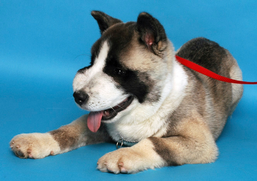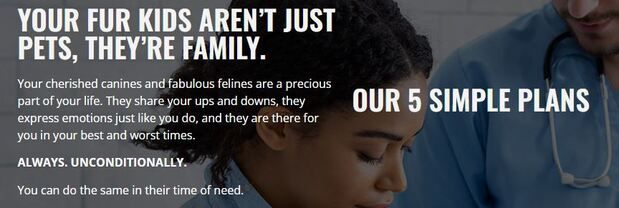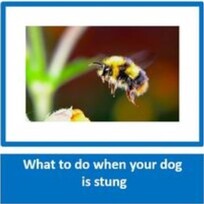Wow! Have You Heard About Lion Jaw??
Keef Whiteman - BA (English, Psychology), Canine Behaviourist student at FOTD

When form overshadows function and looks are prioritized over purpose in the breeding of dogs, this can be detrimental to their quality of life and very stressful (as well as costly -treatment costs can range from a few hundred rand for medications up to several thousand rand if surgery, feeding tube placement and intensive care are required) for their owners.
After having recently received an email from one such owner, the idea for this article was born.
Craniomandibular Osteopathy
Lion Jaw in dogs is inherited, however the exact etiology is unknown. It affects the tympanic bullae, the mandible and on occasion other bones in the head.
Being inherited the disease is first reflected in your pup with abnormal bony growth between the ages of 3- 8 months. Since it is a self – limiting illness, the disease stops progressing at +- 1 year. Excessive bone growth that has developed up to this point will remain. Jaw function in terms of mobility could be impeded and your young dog may experience pain. As such surgery may be required.
After having recently received an email from one such owner, the idea for this article was born.
Craniomandibular Osteopathy
Lion Jaw in dogs is inherited, however the exact etiology is unknown. It affects the tympanic bullae, the mandible and on occasion other bones in the head.
Being inherited the disease is first reflected in your pup with abnormal bony growth between the ages of 3- 8 months. Since it is a self – limiting illness, the disease stops progressing at +- 1 year. Excessive bone growth that has developed up to this point will remain. Jaw function in terms of mobility could be impeded and your young dog may experience pain. As such surgery may be required.
Diagnosis
At the consult a complete history of your dog will need to be presented by you. It’s important to clearly explain the symptoms you have observed to your vet as well as duration and severity, and any other abnormalities you have noted.
Your pup’s jaw may seem larger than it should in proportion to its head. It may experience pain while chewing and while opening and closing its mouth. Your vet will likely do a physical examination and some additional testing (x-ray, complete blood count, chemical blood profile) as well.
Breeds most likely to be affected:
Breeds which are less likely to be affected but which on occasion still are:
Recovery of Craniomandibular Osteopathy (Lion Jaw) in Dogs
I hope that knowing this condition is temporary will provide some encouragement for you while you cope with adjustments that may be required to help your puppy through this period of its life.
A special diet may be required such as high calorie soups, broths or other liquids to get proper nourishment during this period of growth. If the dog is unable to tolerate receiving nourishment in this manner, a feeding tube inserted into the esophagus or stomach may be the only option during this period of growth.
Acupuncture and cold laser therapy can help with pain control.
Though this disease is not generally a fatal one, you will need to be aware that your dog may require a special diet or even the feeding tube for the rest of its life.
An important consideration
Knowing that the condition is hereditary should serve to emphasize the negative consequences of any planned future breeding of both this puppy as well as any siblings it may have. This trait is not one which is in the best interests of maintaining the purity of the breed. Considering this as well as the above-mentioned factors, if you have decided to purchase a new puppy, please do research your breeder of choice as best you can!
At the consult a complete history of your dog will need to be presented by you. It’s important to clearly explain the symptoms you have observed to your vet as well as duration and severity, and any other abnormalities you have noted.
Your pup’s jaw may seem larger than it should in proportion to its head. It may experience pain while chewing and while opening and closing its mouth. Your vet will likely do a physical examination and some additional testing (x-ray, complete blood count, chemical blood profile) as well.
Breeds most likely to be affected:
- Boston terriers
- Cairn terriers
- West Highland terriers
- Scottish terriers
Breeds which are less likely to be affected but which on occasion still are:
- English Bulldogs
- Irish Setters
- Boxers
- Great Danes
- Doberman Pinchers
- Labrador Retrievers
Recovery of Craniomandibular Osteopathy (Lion Jaw) in Dogs
I hope that knowing this condition is temporary will provide some encouragement for you while you cope with adjustments that may be required to help your puppy through this period of its life.
A special diet may be required such as high calorie soups, broths or other liquids to get proper nourishment during this period of growth. If the dog is unable to tolerate receiving nourishment in this manner, a feeding tube inserted into the esophagus or stomach may be the only option during this period of growth.
Acupuncture and cold laser therapy can help with pain control.
Though this disease is not generally a fatal one, you will need to be aware that your dog may require a special diet or even the feeding tube for the rest of its life.
An important consideration
Knowing that the condition is hereditary should serve to emphasize the negative consequences of any planned future breeding of both this puppy as well as any siblings it may have. This trait is not one which is in the best interests of maintaining the purity of the breed. Considering this as well as the above-mentioned factors, if you have decided to purchase a new puppy, please do research your breeder of choice as best you can!





